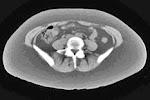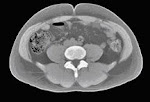Chromium Picolinate is now widely used as a nutritional supplement in weight loss to improve the efficiency of insulin. It is a combination of the element Chromium and Picolinic acid. Trace amounts of naturally occurring Chromium are found in everyday foods like meat, poultry, fish, and whole-grain breads. The processing of foods strips them of natural Chromium.
Chromium Picolinate first gained popularity in US and several effects like weight loss, mood enhancement, energy promotion, increase in life span, and even the prevention of acne were attributed to it. The advertising claims included weight loss, fat melting, drastically reducing the appetite, and even increasing the metabolism. It has also been touted as a safe alternative to steroids, for increasing muscle and strength.
Medical studies conducted on animals demonstrated that inadequate levels of Chromium lead to a decrease in the effectiveness of insulin and subsequent damage to insulin-dependant systems. This reaffirmed the conclusion that trace amounts of chromium are needed to help in the transport of blood glucose across cell membranes. The combination of Chromium with Picolinic acid helped in efficient Chromium absorption and a daily intake of 130 mcg of Chromium was recommended by the health authorities.
Three theories are now widely held:
· Chromium Picolinate improves insulin efficiency, which causes an increase in the production of Seratonin that subsequently reduces appetite
· Chromium regulates the fat formation processes in the body, preventing excess fat from being generated
· Chromium Picolinate enhances protein synthesis, thus stimulating muscle growth
A study by Trent and Thieding-Cancel (1995) concluded that there exists absolutely no link between body fat, insulin insensitivity, and Chromium Picolinate, and did not recommend the supplement as a useful aspect of weight-loss programs (Trent & Thieding-Cancel, 1995).
Chromium Picolinate is not only an ineffective tool for weight loss, but may in fact be counterproductive in dieting endeavors (Grant et al, 1997).
At the end of an eight week period, two groups were tested for strength, fat-free mass, and muscle mass. The experimental group received CP, and control group did not; while all measures increased as a result of resistance training, there were no significant differences between the experimental and control groups. Additionally, there was no effect on fat loss in either group (Lukaski et al, 1996).
Another study specifically refutes claims that Chromium Picolinate produces results analogous to anabolic steroids, and discourages the use of the supplement among athlete populations (Walker et al, 1998).
However, one study did reveal Chromium Picolinate as an effective aid for weight loss. Harris et al (1998) examined dietary supplementation with Chromium Picolinate and lipotropics such as L-carnitine. The combination of supplementation and exercise significantly increased fat loss as compared to the control group. The results of this study were available only in abstract form and offered only these preliminary results (Harris et al, 1998).
Several studies using animal subjects also assert fat loss and muscle growth (Mooney et al, 1995; Lindemann et al, 1995).
However, scientific evidence that Chromium Picolinate can accomplish the same feat in humans is still rare…
(Reference sources for the researches quoted above will be emailed on request)
Subscribe to:
Post Comments (Atom)


No comments:
Post a Comment